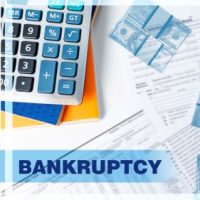Is Chapter 13 Bankruptcy a Good Idea?

If you want to take control of your own financial situation and protect your assets from creditor seizure, then yes, Chapter 13 bankruptcy (a/k/a the wage earner plan) is a good idea. Chapter 13 is also a good idea if you want the benefits of bankruptcy but don’t want some of the drawbacks, such as a radically lower credit score. Chapter 13 debtors repay most of their debts, at least most of their past-due secured debts. Therefore, the credit score impact isn’t as bad.
Chapter 13 gives distressed debtors a fresh start. A Chicago bankruptcy lawyer helps debtors maximize their fresh starts. Attorneys thoroughly review cases and carefully file paperwork, virtually eliminating the chance of an early error and getting off on the wrong foot. As the bankruptcy unfolds, an attorney gives debtors solid legal advice and stands up for them in court. After discharge, attorneys continue supporting debtors as they strive to put their financial problems in their rear view mirrors.
Qualifying for Chapter 13
Formal Chapter 13 qualifications include two financial management courses and a debt ceiling. In this post, we’ll focus on the informal Chapter 13 qualification, which may be even more important than the other two.
Chapter 13 involves allowed claim repayment. Usually, allowed claims include secured debt arrears and some unsecured debt arrears, such as student loans and back taxes. So, in order to qualify for Chapter 13, the debtor must have sufficient disposable income to make a monthly debt consolidation payment.
This payment is difficult to specifically determine but easy to generally estimate. Add all allowed claims, divide by thirty-six, and that’s probably your payment. Some bankruptcies last sixty months (five years), so the debt consolidation payment is lower, but debtors shouldn’t count on that extra time.
If debtors cannot make the payment, they basically have two options. Sometimes, a Chicago bankruptcy lawyer can file a motion to modify the plan payment’s size. As long as the proposed new payment meets minimum legal standards, the judge usually approves the modification. Alternatively, the debtor could convert to Chapter 7. This conversion means no more monthly payments and a faster fresh start.
Chapter 13 Procedure
Once debtors file their voluntary petitions, Section 362 of the Bankruptcy Code immediately blocks most creditor adverse actions, such as:
- Foreclosure,
- Wage garnishment,
- Repossession,
- Utility shutoff, and
- Eviction.
Usually, the Automatic Stay remains in full effect until the judge closes the bankruptcy after three or five years. During that time period, creditors usually cannot contact debtors for any reason.
The contact prohibition usually applies to monthly billing statements and ACH withdrawal agreements. Radio silence on the creditor’s part doesn’t relieve the debtor of the obligation to keep making payments as agreed, at least on secured debts.
At the end of the bankruptcy, if the debtor made all payments as agreed, the judge normally discharges any remaining unsecured debts, such as medical bills and credit cards. So, the debtor has a clean slate and can move forward with confidence.
Count on a Detail-Oriented Cook County Lawyer
No matter what kind of financial problem you are having, there’s a way out. For a free consultation with an experienced bankruptcy attorney in Chicago, contact the Bentz Holguin Law Firm, LLC. We routinely handle matters throughout the Prairie State.
Source:
uscourts.gov/services-forms/bankruptcy/bankruptcy-basics/chapter-13-bankruptcy-basics


